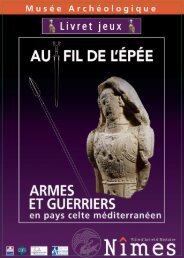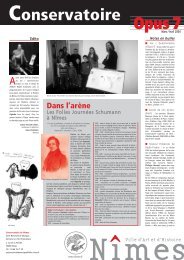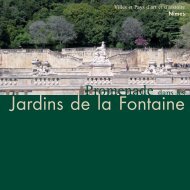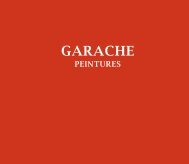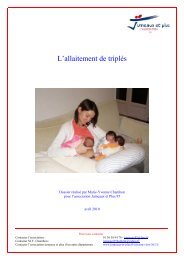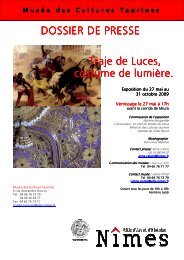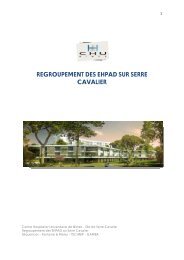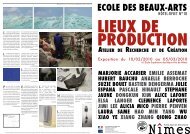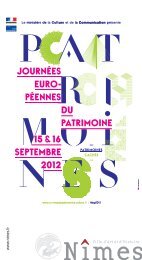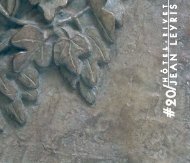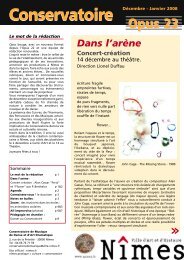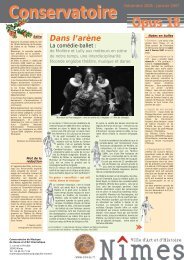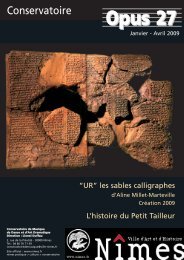.Presentation of the school - Nîmes
.Presentation of the school - Nîmes
.Presentation of the school - Nîmes
You also want an ePaper? Increase the reach of your titles
YUMPU automatically turns print PDFs into web optimized ePapers that Google loves.
84<br />
Albert Ranieri<br />
Albert Raniéri is an art historian.<br />
E.S.B.A.N. teaching staff<br />
General subjects<br />
A trained academic, he initially worked on Tuscan Mannerism and Baroque<br />
scenography.<br />
After several study and research stays at <strong>the</strong> German Institute <strong>of</strong> History<br />
<strong>of</strong> Art in Florence and a year in <strong>the</strong> United States, he focused his teaching<br />
on applied arts and environment design.<br />
He is also interested in <strong>the</strong> relations between art and architecture, in<br />
questions concerning <strong>the</strong> idea <strong>of</strong> nature in art and exhibition practices.<br />
Lecturer, he also gives courses at Université Paul Valéry in Montpellier<br />
(Institut des étudiants étrangers) and he manages <strong>the</strong> organisation <strong>of</strong><br />
group trips at <strong>the</strong> <strong>school</strong> (in France and abroad).<br />
Alain-Christophe Restrat<br />
A poet and poetry critic born in 1946, he is <strong>the</strong> author <strong>of</strong> books <strong>of</strong> poems,<br />
published in particular by Flammarion, and several artist’s books. Poetry<br />
readings at Centre Georges Pompidou, <strong>the</strong> Musée d’Art Moderne in<br />
Paris, <strong>the</strong> CIPM in Marseilles and abroad (USA, Arab countries).<br />
In 1980, he met Henri Michaux who encouraged him to continue his<br />
writing independently and outside movements. He taught French<br />
literature and civilisation for a long time in <strong>the</strong> United States.<br />
Corinne Rondeau<br />
Academic and critic<br />
‘ I write differently from <strong>the</strong> way I speak, I speak differently from <strong>the</strong> way<br />
I think, I think differently from <strong>the</strong> way I should think …’ Kafka<br />
Subject: Politics and exhibition news.<br />
The issue <strong>of</strong> an exhibition is less that <strong>of</strong> <strong>the</strong> form or that <strong>of</strong> <strong>the</strong> content<br />
than that <strong>of</strong> contextualisation. Under <strong>the</strong>se circumstances, exhibitions<br />
recover <strong>the</strong>ir literary definition.<br />
Fur<strong>the</strong>r, exhibitions stem more from <strong>the</strong> involvement <strong>of</strong> cultural organisation<br />
(interaction between spectators, works, curators, critics, galleries<br />
and museums). In o<strong>the</strong>r words, <strong>the</strong> question <strong>of</strong> contemporary art is that<br />
<strong>of</strong> <strong>the</strong> exhibition as a way <strong>of</strong> showing more a policy <strong>of</strong> art than art, that<br />
is to say an organisational issue. All <strong>the</strong> exhibitions addressed are linked<br />
with history <strong>of</strong> art (forms, discourse and movements).



